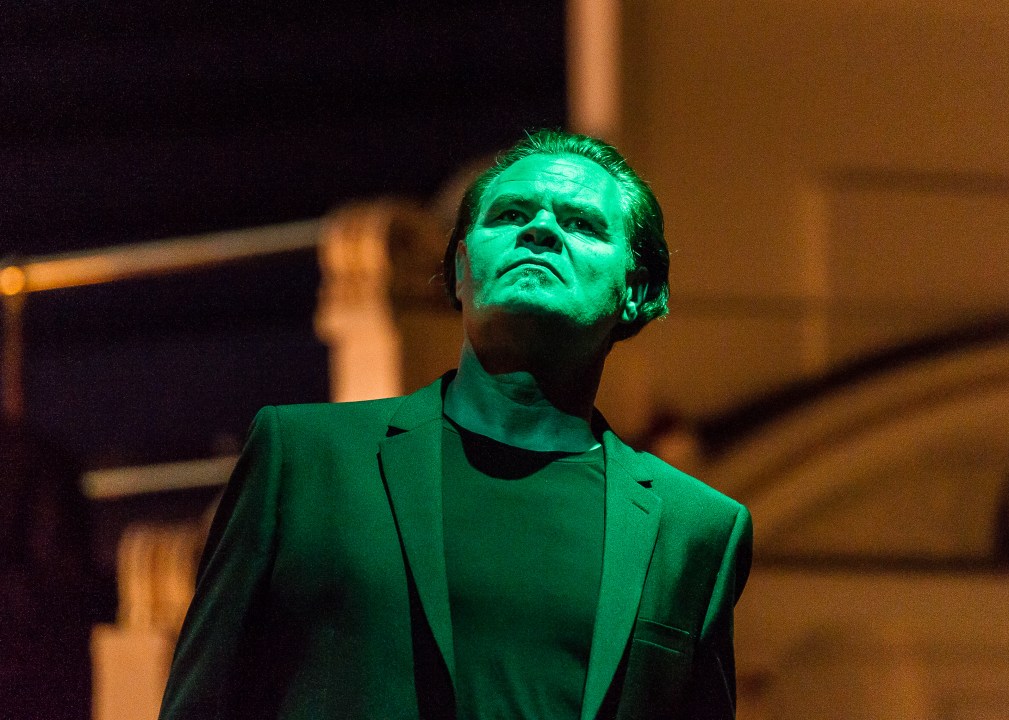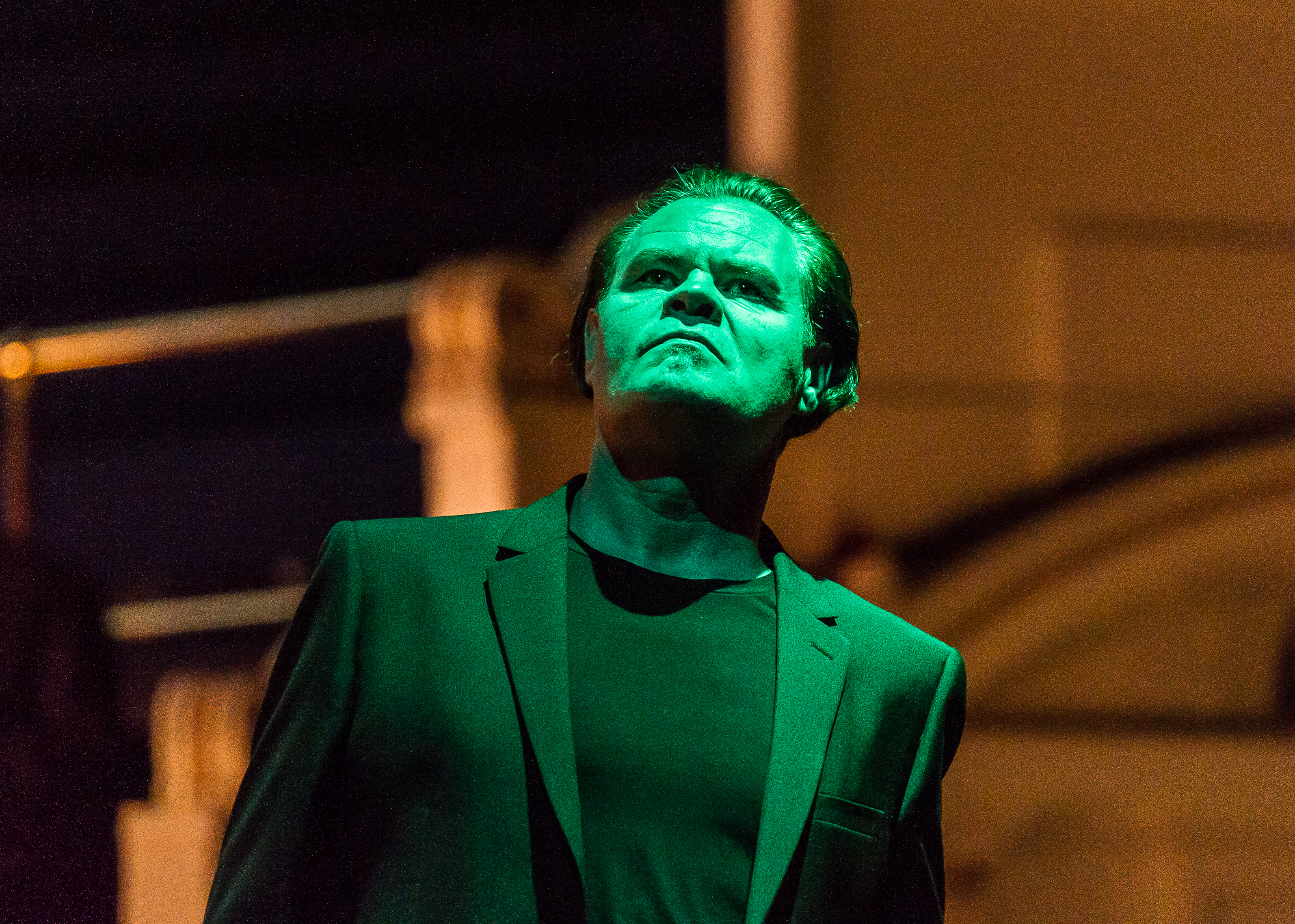Siegfried is, everyone agrees, the hardest of the Ring dramas to bring off. The first and almost insurmountable problem is that the title role is one that almost no one can sing, and one of which even on recordings there are very few wholly satisfactory accounts. Lauritz Melchior, the only tenor with the adequate size and beauty of voice, and the sensitivity, when he could be bothered, to employ them to the full, never recorded the role complete, his only ‘live’ preserved performance being heavily cut. The most one can hope for is a more-or-less decent account, and they are rare.
The other chief problem with Siegfried is that, coming after the emotional intensities of Die Walküre, perhaps the most straightforwardly involving of all Wagner’s works, it is likely to seem somewhat remote, Siegfried’s process of learning how to be a hero through forging a sword, slaying a dragon, incidentally killing his foster father, insulting and vanquishing the Ring’s central and most complex figure Wotan, even going undaunted through sheets of flame to awaken the first woman he has seen with a kiss, belonging more to the realm of fairy tale than myth.
The semi-concert production of Siegfried which Opera North is touring at present doesn’t make light of these problems, but it deals with them more satisfactorily than any fully staged production I have seen for a very long time, and provides a more enjoyable and moving evening than I had dared to hope for, even taking into account the superb two previous accounts of the Ring dramas that it has produced in the past two years. I saw it in Symphony Hall Birmingham, an ideal location for the atmospheric projections on huge screens behind the orchestra, and for the orchestra itself onstage.
One of the undeniable treats of Siegfried is the astonishing orchestration, Wagner delighting in the creation of a variety of Nature effects to a degree that no other of his dramas gives him a chance to do. Of all his arresting openings — clearly no one can compare with him in creating the sense of what an opera is to be like in the opening bars — Siegfried, with its just audible timpani roll, its dislocated bassoon chords, and then the obsessional rhythm of Mime’s hammer, is the most audacious, since it’s so hard to work out what it is doing, until we realise that we are entering the mind of a wretched and delusional dwarf. It’s important that Mime’s role should be sung beautifully, otherwise it becomes the torture it is on the Solti recording. Richard Roberts sang it with pointed expression but rarely exaggerated, and so we were able to feel the mixture of sympathy, revulsion, amusement and occasional alarm that Wagner aimed at in what he called this ‘comédie héroique’.
Siegfried entered in the burly form of Mati Turi, who sang tirelessly, though some of his top notes from early on were strained; but it’s a pity that he employs only two facial expressions, to express contentment or irritation. Michael Druiett, as the Wanderer, is impressive and, when he does a little more with the text, will be great. Unlike most of the singers he did throw himself into the part, acting it vividly, and reached magnificent heights in his confrontation with Erda, the remarkable contralto Ceri Williams, whom we have to hear a lot more of. The Wanderer’s confrontations, with Mime, Alberich, Erda, Siegfried, are perhaps the most stirring passages in Siegfried, Wagner’s sympathy with the old order passing outweighing his concern with what is replacing it. Or that is what it can often seem like, and with a singing actor of Druiett’s power that seemed almost inevitable.
However, the final scene, Brünnhilde’s awakening and coming to terms with her diminished status, managed to tilt the balance towards the future. Only just, because Annalena Persson, the Brünnhilde, is an unreliable singer, and when I heard the broadcast performance I thought she was impossible, with a wide vibrato and insecure high notes. Seeing her was a different matter. She is handsome, noble in appearance, a superb actress with her eyes and arms, and she made the final duet, which is possibly the most problematic part of the whole cycle, into something gripping and then thrilling.
What made all these fine performers, and the rest, whom I haven’t space to mention, work together for an electrifying effect was, of course, the conducting of Richard Farnes. His experience of conducting Wagner consists of the previous two parts of the Ring, yet there is no one else today who can deliver so complete an account of these enormous elaborate scores. Orchestral balances are ideal, the Opera North orchestra plays for him with unbelievable fervour and precision, and when we arrived at what may be the Ring’s most stupendous orchestral passage, the Prelude to Act III, we reached a pinnacle of intensity — and of volume of sound — which may have surpassed any account of it I have ever heard. I almost dread the thought of next year’s Götterdämmerung, if it maintains this standard.







Comments